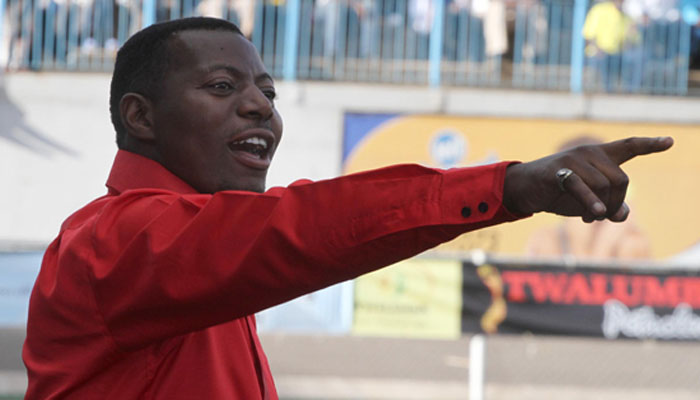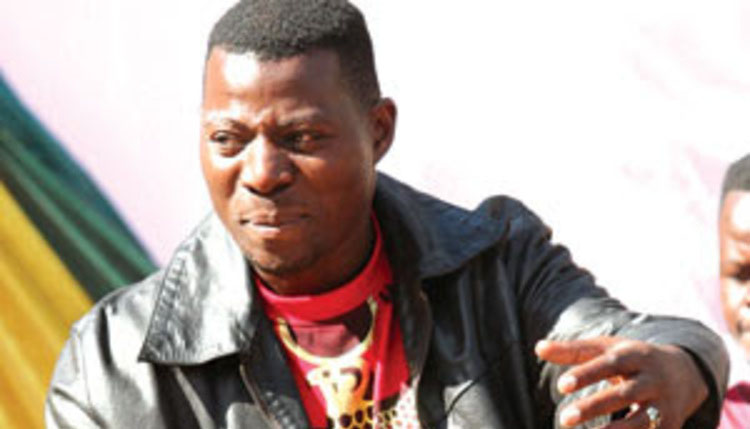
The Sunday Mail

On this very day, six years ago, the nation was plunged into mourning. Tongai “Dhewa” Moyo had breathed his last at St Anne’s Hospital in the capital, after a protracted fight against non-Hodgkin’s lymphoma.
Not since the death of Sam Mtukudzi, exactly 19 months earlier, was a nation more united in mourning one of their musical talents. Sam tragically passed away in a road traffic accident on March 15, 2010.
Or one would have to rewind six years earlier as well, in August 2005, when the nation woke up to the shocking news of Simon Chimbetu’s passing on.
It has been a short six years since Dhewa’s death, but that could be a very long time in showbiz. Whilst the nation was still trying to get to grips with the devastating news of Dhewa’s demise, his son, Peter, jumped onto the stage and wiped off all the tears that we were collectively shedding.
Granted, it was not an easy ride and Peter found himself being thrust into the deep end of leading Utakataka Express as his father lay on his deathbed. Over the six years he has been at the helm, he has battled to win souls, opinions and hearts.
The journey has had mixed results – and three albums later — one might be forgiven for assuming that the nation is not exactly convinced that Peter has done enough justice to carry on his father’s torch.
In fact, there have been murmurs in the corridors of showbiz, whispers asking if we are not putting too much burden on the young souls, expecting them to be like their fathers.
Another case in point being how Suluman Chimbetu has struggled to fit into his father’s rather oversized shoes. Outside of collaborations, Sulu does not have a hit of his own, his critics have been quick to point out.
In the two or three years since the demise of Dhewa, Peter, probably aware of how high the emotions were in the country surrounding his father’s death, would hold commemorative shows almost religiously.
And now that those emotions have somehow died, Peter has been left to be his own man and he has since realised that he can no longer ride on his father’s name any more. And it should be no coincidence that the posters to his shows this weekend have not made any attempt to mention his father’s name.
But, as a nation, should we also forget Dhewa, the colossus that helped redefine sungura music in Zimbabwe? There are some, if not many, of us who still think that Dhewa died with sungura, that the genre no longer has that wow factor that it had during Dhewa’s days, especially during his last days.
Before Dhewa emerged on the entertainment scene, sungura hardly attracted crowds from north of Samora Machel Avenue, was hardly played loudly and proudly. In fact, the lasting image we had of sungura was that of System Tazvida, he was our poster boy of sungura. Or Pengaudzoke. Or Njerama Boys.
Thus, our collective attachment with sungura needed one to have an unkempt appearance or better for someone to have a background which borrowed heavily from a rural, farming or mining setting to appreciate and approve of sungura.
Then came the whirlwind, rather the hurricane that they named “Dhewa”, “Murozvi Mukuru”, “Samanyemba” or “Mopao Mokonzi”. It was his style which helped change the perception surrounding sungura, sungura was no longer the tune for the farming community.
Sungura could be played openly – and loudly – from the latest of Mercs. And salads, that is the euphemism for the long-nailed girls who wear stilettos to live shows, started appreciating sungura music, and they went in their droves to live performances by Dhewa and Alick Macheso.
Where System Tazvida had done quite much as his talent could take him in making sungura a readily recognisable sound bite, Dhewa, then a clerk with Kwekwe General Hospital, decided to leave formal employment and take to the stage, in a bid to take sungura to the next level.
Drawing a lot of inspiration from the late Leonard Dembo, Dhewa struggled in the early days (indeed diamonds take ages to form) but he was to be an astute student.
It would be worthwhile to mention that the time that Dhewa emerged on the scene, rhumba music was reaching its peak as well. So as much as Dhewa drew inspiration from Dembo, he could not avoid the influence from the Democratic Republic of Congo, some might remember the country as Zaire, from where rhumba was blazing the world.
He didn’t just borrow the tunes, there are some reports which suggested some of his songs were copy-and-paste, but he went a step further and borrowed the style as well.
Where sungura had made its mark through shabbiness and general unkemptness, Dhewa changed all that perception and became, overnight, probably the first fashion icon to be born out of sungura.
His band members went on stage well dressed, the dances were choreographed and sungura, all of a sudden, had a new image. At last sungura music had arrived on the Zimbabwe scene.
And it was to be the purely meaningless Samanyemba song that propelled Dhewa to national stardom, and as much as the song was attaining anthemnic proportions across the country, Dhewa was pushing himself from being a curtain-raiser to Mtukudzi’s live shows, to being a main attraction himself.
Years later, when Dhewa was at the peak of his career, we sat down for some coffee, it must have been an interview to preview one of his upcoming releases, when he recalled: “Samanyemba caught all of us by surprise. When we went to record, we had prepared five songs and the engineer said we needed six songs, three on each side of the cassette. Since we were already in the studio and didn’t have enough time to compose, we just settled for ‘Samanyemba’, the song that we used at live shows to introduce the band members.”
And when the “Samanyemba” album was released, sungura music caught fire and the landscape was no longer to be the same. All of a sudden, Macheso who had hitherto ruled the roost unperturbed by competition, had something to lose sleep over.
This marked the birth of one of the nastiest and long-running soap operas. Soon Macheso and Dhewa were to be involved in a battle of wits, releasing and counter-releasing songs that ridiculed one another.
And before long, the whispering began and then heightened as the battle for sungura’s numero uno reached fever-pitch – Macheso and Dhewa were fighting on and off the stage, in and out of studio – over some girls who, probably a decade earlier, only had Mtukudzi on their playlist.
By then Mtukudzi and Thomas Mapfumo were the only “international” musicians from Zimbabwe.
The rivalry moved, somehow, from firing salvos through verses such as Macheso’s “usatyisidzirwe nezizi kuti rine nyanga, hadzizi nyanga inzeve” to which Dhewa replied, “ini ndinoziva wani kuti zizi harina nyanga asi kuti rakamhara pamusoro penyanga”, to bedroom issues, and the rumour mill was soon to be in overdrive that the two sungura artistes were seeing almost the same set of girls.
One popular urban legend has it that when out in Mozambique for a double performance, they noticed they shared a similar brand of socks – socks which had been sent from a United Kingdom-based lover.
From whereupon the rivalry took ominous proportions, and the ever-prying media took notice and feasted on them. And sungura music was on fire like it had never been before. Another rivalry of this proportion might take a lifetime to materialise.
But as he lies buried in Sesombe, somehow you have to give it to Dhewa for keeping his two wives a secret, away from the prying media, until one of them committed suicide. If Barbara Muchengeti had not decided to kill herself maybe Dhewa was to walk into his grave with his “secret”.
Whether Peter decides to honour his father this weekend or not, we should not, as a nation, be complicit in his acts of omission, for in Dhewa we still have fond memories, fond memories of our first fashion icon born out of sungura, fond memories of our Dhewa who helped take sungura from the farm slums into the hearts of Borrowdale.
And since his demise that October 2011 evening, sungura music has not been the same. Macheso has struggled for form and his releases have been somewhat lukewarm. Tellingly, Macheso’s presence in Harare is now few and far in-between – maybe if Dhewa were around, it might be a different proposition.
Long live Dhewa, Murozvi Mukuru, Samanyemba or Mopao Mokonzi – we will never forget!




